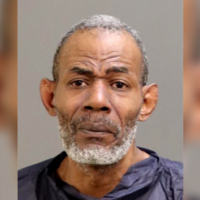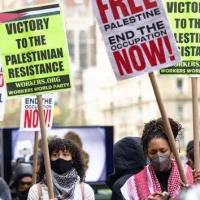 amana images/Thinkstock(CHICAGO) — The killing of NBA star Dwyane Wade’s cousin Nykea Aldridge, who was caught in crossfire as she walked her newborn on Chicago’s South Side, has brought more attention to the widespread violence in the Midwest’s largest city.
amana images/Thinkstock(CHICAGO) — The killing of NBA star Dwyane Wade’s cousin Nykea Aldridge, who was caught in crossfire as she walked her newborn on Chicago’s South Side, has brought more attention to the widespread violence in the Midwest’s largest city.
The statistics on such slayings in Chicago are staggering. There were 316 homicides from Jan. 1 to June 30 of this year. No other city cracked the 300s.
The nation’s largest city, New York – which has a population about three times Chicago’s – had 161 homicides in the first half of this year.
There were 244 homicides in Los Angeles area, according to numbers from the Los Angeles Police Department and Los Angeles County Sheriff’s Department.
Here’s how the number of homicides in Chicago compares to the other U.S. cities with the highest homicide rates:
 Major Cities Chiefs Association
Major Cities Chiefs Association
And how the number of non-deadly shootings in Chicago compare to those same cities:
 Major Cities Chiefs Association
Major Cities Chiefs Association
“An increasing numbers of major cities across the country are experiencing increases in violent crime – in particular gun-related crime,” and much of this crime is occurring within minority communities, said John Cohen, an ABC News contributor who is a former U.S. counterterrorism official.
Cohen attributed the violence in Chicago and other cities to three trends: 1. An increased level of confrontational gang interactions; 2. more guns being carried; 3. and local police pulling back in proactive stops.
“It’s primarily being driven by gang-related activity, and the fact that criminals in these communities believe they are less likely to be stopped by police so they are choosing to carry guns,” Cohen said. “So when a confrontation occurs it’s more likely going to turn into a shooting.”
“People are scared of being involved in a confrontation where another person has a gun and they don’t. So people in these communities are carrying guns, because their perceiving the police being less proactive in trying to find people carrying guns, Cohen said. “It’s a whole different risk question for them. … They would rather take the risk of being caught with a gun illegally than not having a gun if they’re involved in a confrontation with another gang member.”
And “part of the reason they feel more emboldened to carry… they are seeing they are being stopped less frequently by police.” Cohen said. “Criminals ware much more willing to carry guns because they believe they can get away with carrying those guns, because they are also seeing a decrease in police going out in the communities to contact people and get guns off the street.”
Cohen said proactive stops by police “is the primary way you deal with this type of violence.”
Police usually “deal with gang-related violence through a variety of focused, proactive enforcement activities targeting repeat offenders and violent gang members,” Cohen said
But those efforts are difficult in Monday’s highly charged, polarized environment, Cohen said, where “attitudes towards police – particularly in communities of color – are negative” and police departments “need to work to regain trust with those community members.”
Cohen says decreasing gang-related crime is going to take police officers’ going into those communities and aggressively targeting repeat offenders, people on parole and probation, and gang members — “those individuals who we know are involved in violent activity.”
As Chicago Police Department Superintendent Eddie Johnson this weekend announced the arrests of two convicted felons in connection with Aldridge’s killing, he said, “This reprehensible act of violence is an example of why we need to change the way we treat habitual offenders in the city of Chicago. When will enough be enough?”
“She was just another mother who wanted her children to get an education just like any good parent would,” Johnson said of Aldridge. “Instead her life was cut short by gunfire from two convicted felons who were both out on parole. One of whom was on his daily break from an electronic monitoring bracelet.”
Johnson said Chicago must “take action when it comes to how we sentence our repeat gun offenders. I’m frustrated, you should be frustrated, all Chicagoans should be frustrated.”
“This tragedy isn’t just noteworthy because Ms. Aldridge has famous family member,” he said. “It’s noteworthy because these two offenders are the prime example of the challenge we face here in Chicago with repeat gun offenders that don’t care who they shoot, don’t care whose life they take and clearly, clearly, don’t fear the consequences of their actions.”
Copyright © 2016, ABC Radio. All rights reserved.















